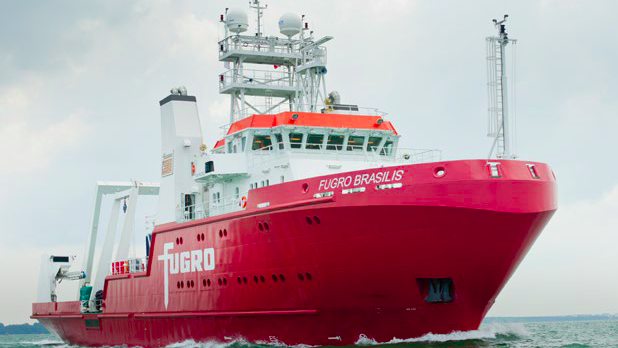Largest Ever Seep Survey for Mexico Offshore Auction

Geotechnical firm Fugro has announced plans to carry out the largest ever survey for subsea hydrocarbon seeps, to cover an area of 180,000 square nm in the Gulf of Mexico.
Naturally occuring seeps of hydrocarbons are an indicator of potential oil prospects, and Fugro says that finding them is a technically sophisticated process, requiring careful analysis of sonar backscatter data – but also a cost-effective way to hunt for oil reserves over a large area.
The project will use multibeam sonar and sub-bottom profiling systems on three vessels, and data will be analyzed by geoscientists on board in real time.
The survey will be carried out for multi-client geoscience data provider TGS, and is part of a larger industry-funded project called the Gigante Survey, which will also include 50,000 square nm of 2D seismic.
.jpg) Chart of Gigante Survey (courtesy TGS)
Chart of Gigante Survey (courtesy TGS)
Fugro says that the large-scale surveys will constitute "the most comprehensive and newest continuous offshore Mexico dataset," timed to coincide with the opening of Mexico's oil and gas market to foreign investment
Mexico’s state-owned oil company Pemex was denationalized by President Enrique Pena Nieto in 2014. Despite low oil prices, in its first three auctions the nation sold rights to 30 of 44 lease blocks, including all mature onshore fields offered. As the nation's total reserves are estimated at 13 billion barrels, with some of the best opportunities offshore, analysts expect that it is a matter of time before international oil and gas majors purchase and develop deepwater leases.
Chevron, Royal Dutch Shell and Statoil are among more than a dozen oil firms applying to bid on 10 deepwater blocks in an auction scheduled for December, including potentially lucrative areas described as Mexico’s oil and gas “crown jewels.” Winning bidders will obtain license contracts, but will not be required to drill wells for the first four years, which may help attract additional interest; oil firms have recently sought to delay capital expenditures until the market recovers, and deepwater has been hardest hit, according to WoodMac.
